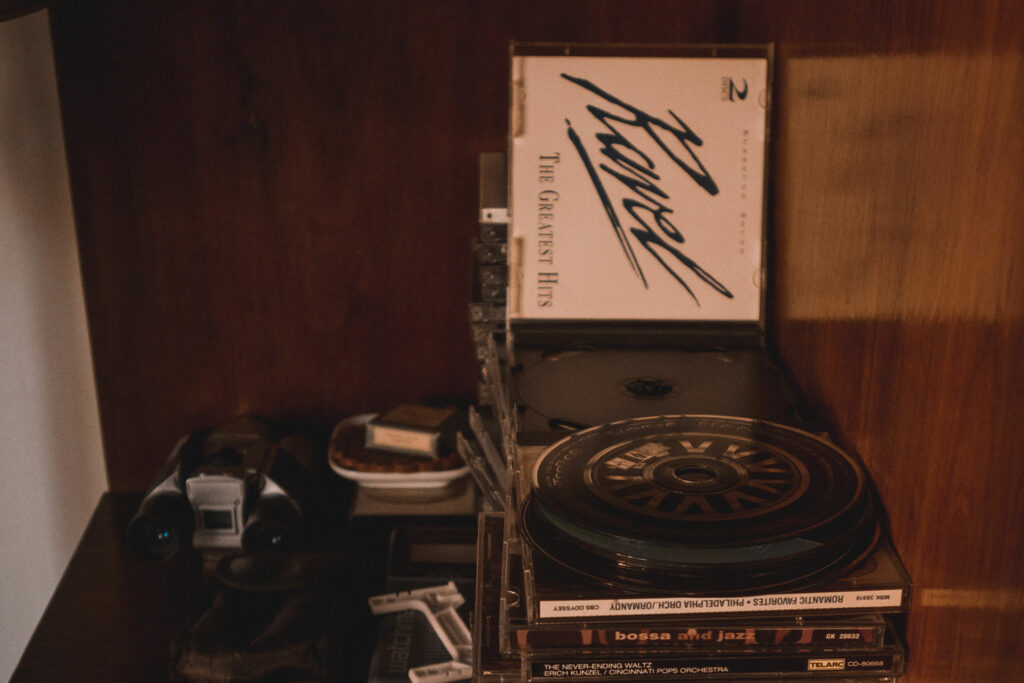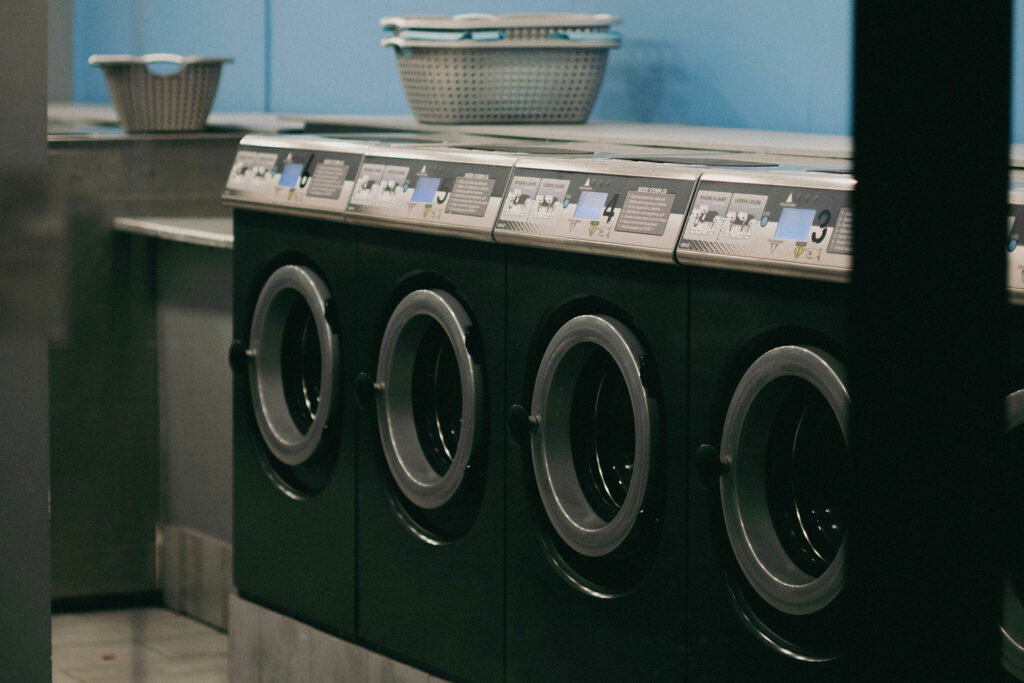Imagine you walk into your favorite local audiophile dealer to spend some time listening to the latest and greatest gear on display. Years ago, most professional stereo salespeople had a short stack of their best Compact Discs ready to play for you on a moment’s notice, but today, with the advent of streaming music, we’ve opened up the world of literally unlimited musical possibilities, which raises an interesting question: what do you actually want to hear and how do you politely but effectively get the most from your audiophile demo?

Ask the Salesperson to Play You Two or Three of Their Favorite Tracks Before You Get Yours
Not every audiophile salesperson is a top-level closer or an audiophile killer (learn how to be one yourself here), but you can help them to get you to a great outcome with a little guidance. I remember when people would come into Christopher Hansen Ltd. in Beverly Hills in the mid-1990s to hear products like THIEL or Wilson Audio speakers and they had a copy of, say, The Who: Live at Leeds in hand. This is like a news reporter handing the person they are interviewing their microphone. Smart TV anchors know to never give up control of their microphone. Smart audiophile salespeople (and customers) do the same, but in the event of an audiophile demo, there needs to be a little give and take so that the person giving the demo gets to make his/her points and you get to hear some music you can relate to.
Before my days in specialty AV publishing, when I sold very high end audio gear for a living, I would often ask the client permission to play a minute or two of my best demo tracks before playing their music. If the customer refused, I knew that I didn’t have a significantly qualified buyer and needed to wrap things up quickly, as zero times ever did a product audition start this way and then end with a credit card provided for said desired AV investment. To complicate the matter more in the modern era, the realities of people having huge quantities of music right on their phone paired with unlimited access to CD- or higher-level resolution streaming, picking the best tracks can be complicated. Asking your local salesperson what they would like to play for you is always a good way to warm things up musically and get the demo off to a good start.

Obscure Audiophile Music Kinda Sucks So Don’t Be Shy About Asking to Play Music That Doesn’t Make You Want to Kill!
I am just back from the CEDIA tradeshow in Denver which is mostly a custom installation or home theater show, but there is plenty of audio to experience there as well. When asked what I would like to hear in a non-scripted audio demo, I often ask for something that is “RIAA certified platinum” meaning “play me something that I’ve actually heard before.” How exactly can you determine if the system/component you’re looking into is any good if you don’t have any familiarity with the music being played? Asking for some options that you’ve heard before is completely fair. Playing Indonesian gamelan music might sound great as a demo, but how can you tell how the system or component sounds? There are so many other external factors, including the room and other components that keeping your music somewhat standardized helps give you a frame of reference as to what you are listening to. In the rare event that the store doesn’t have anything you like, be sure to have some of your favorite demo tracks on your phone that you can stream into their best audiophile DAC so that you can get the demonstration you want/need/desire from your trip to the stereo store.
Audiophile Demos Should Never Play Past the First Chorus
Too many audiophile salespeople play music for too long for their clients. Most people have a short attention span, so playing a demo track for about 1:30, or to the end of the first chorus of a pop song, is a good marker for when to roll down the volume. Even if you are excellent at an audiophile demo (read here to find out some tips to easily accomplish this goal), you aren’t going to select music that speaks to your audience, and keeping your demonstration short and to-the-point is a great way to be able to live to fight another day. At the Three Star Micheline ranked Napa restaurant, The French Laundry, their uber-famous chef, Thomas Keller, delivers well over 20 small dishes over upwards of three hours of dining. It is a marathon of eating event even if the portions are small when judged on their own. If there’s something that you don’t like (unlikely, by the way), then just wait until the next course, as it’s likely coming up pretty soon. Audio is the same way and unlike The French Laundry (which purposefully doesn’t play music to deprive you of that sense so that you can focus on taste, smell, and sight) you get some good music into your life this way.
Remember, the goal isn’t to close your deal or make your audiophile argument emphatically, right there on the spot. Someone who does a great audiophile demo knows that they’re earning “trial closes,” meaning small victories that build to a bigger goal. Not every attempt is going to be a win, so don’t get caught playing 20 minutes of orchestral music to somebody who isn’t all that into classical but is too polite to tell you. These audiophile audition opportunities are too few and far between to waste them. It is up to you to communicate clearly (but politely, of course) so that you get what you want out of the experience. You have every right to get that out of an audiophile demo, be it at a store, at a trade show, or elsewhere.
It’s understandable why a manners-oriented human being could be a little anxious in these audiophile situations, but there is simply nothing to worry about. You deserve to get a relatable, rock-solid demo of any audiophile system that you sit down to enjoy. If that isn’t happening, we are encouraging you to take matters into your own hands and get things headed in a different direction. A truly pro audiophile salesperson might never need any of these suggestions, but we all know that there are all levels of competency in the world of audiophile dealers. If you need to take control of the demo, do so with confidence so that you can come to strong conclusions about the components you’re looking into. This is your audiophile right.
The Five Most Popular Audiophile Demo Songs of All Time (no specific order)
Audiophiles are known for their discerning ears and passionate opinions when it comes to music playback. Ask a group of enthusiasts about their preferred demo tracks, and you’re likely to receive a diverse array of responses. However, over the years, certain songs have emerged as near-universal benchmarks in the audiophile community. These tracks are not only musically compelling but also serve as critical tools for evaluating the performance of audio systems, highlighting aspects such as clarity, dynamics, and spatial imaging. Below is a selection of five such tracks, presented without a specific ranking:
“Hotel California” (Live) – Eagles (Hell Freezes Over, 1994)
The live acoustic rendition of “Hotel California” from the Eagles’ Hell Freezes Over album has become a staple in audiophile circles. The track begins with intricate Spanish-style guitar work accompanied by subtle percussion, offering a clear and detailed soundstage. Each instrument is distinctly positioned, allowing listeners to assess stereo imaging and the system’s ability to reproduce spatial cues accurately. Don Henley’s vocals are centered and articulate, providing a reference for vocal clarity. As the song progresses, the ambient sounds of the live audience contribute to a sense of immersion, testing the system’s capacity to convey the atmosphere of a live performance. A well-balanced system will present this track with depth and realism, without introducing brightness or congestion.
“Take Five” – Dave Brubeck Quartet (Time Out, 1959)
“Take Five,” from the Dave Brubeck Quartet’s Time Out album, is renowned for its distinctive 5/4 time signature and has become a reference point for audio testing. Paul Desmond’s alto saxophone leads with a smooth, melodic line that should sound warm and natural. The accompanying piano and upright bass provide harmonic support, while Joe Morello’s drum solo offers a range of percussive textures. This track allows listeners to evaluate a system’s handling of instrumental timbres, dynamic contrasts, and rhythmic precision. A high-fidelity system will reproduce the subtle nuances of the performance, maintaining the balance between instruments and preserving the recording’s intimate atmosphere.
“Deacon Blues” – Steely Dan (Aja, 1977)
From Steely Dan’s acclaimed album Aja, “Deacon Blues” exemplifies meticulous production and complex arrangement.The track features a blend of horns, backing vocals, layered keyboards, and a tight rhythm section. Donald Fagen’s vocals are delivered with subtlety, and the saxophone solo is notable for its rich tone and expressive dynamics. This song serves as a comprehensive test for a system’s midrange accuracy, tonal balance, and ability to resolve intricate arrangements. An audio setup capable of delineating each element without muddiness or overlap will provide a satisfying listening experience.
“Money for Nothing” – Dire Straits (Brothers in Arms, 1985)
“Money for Nothing,” from Dire Straits’ Brothers in Arms album, showcases early digital recording techniques. The track opens with ambient sounds that transition into a distinctive guitar riff characterized by its unique tone. The arrangement builds with the introduction of synthesizers, drums, and vocals, creating a layered and dynamic soundscape. This song is effective for assessing a system’s dynamic range, clarity, and ability to handle complex mixes.A well-engineered system will reproduce the punch of the drums, the grit of the vocals, and the depth of the bass line without distortion or loss of detail.
“Time” – Pink Floyd (The Dark Side of the Moon, 1973)
“Time,” from Pink Floyd’s The Dark Side of the Moon, is notable for its innovative use of sound effects and atmospheric production. The track begins with an array of clock sounds and chimes, followed by rhythmic patterns that build into a full-band arrangement. David Gilmour’s vocals and guitar solos are central elements, accompanied by layered instrumentation and backing vocals. This track tests a system’s ability to reproduce transient details, maintain coherence across dynamic shifts, and convey the spatial dimensions of the recording. A capable system will present the intricate details and expansive soundstage inherent in the track, enhancing the listener’s engagement with the music.
These selections are widely recognized within the audiophile community for their ability to reveal the capabilities and limitations of audio equipment. They provide a comprehensive evaluation across various musical elements, assisting listeners in fine-tuning their systems for optimal performance.



